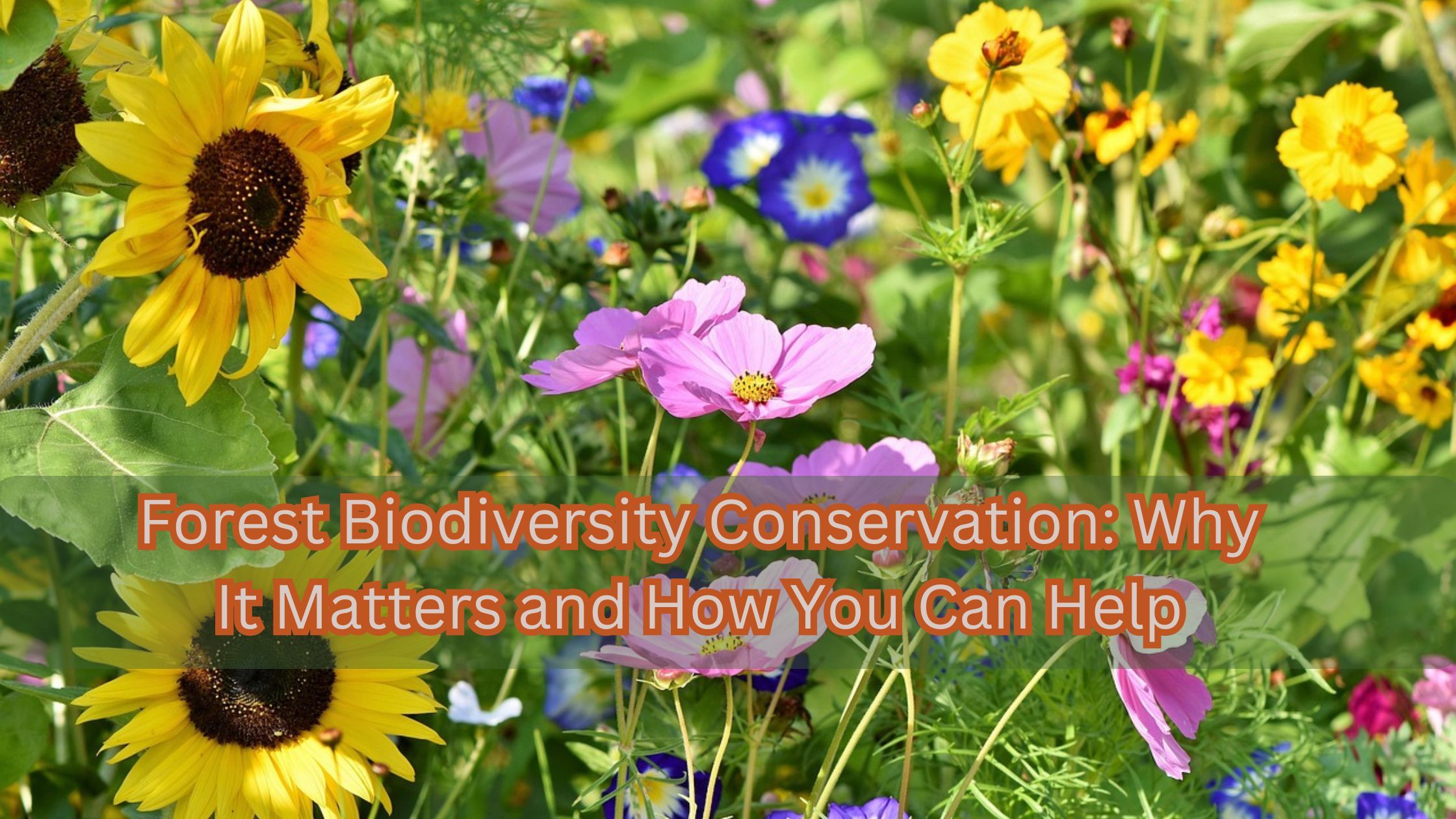Forest Biodiversity Conservation: Why It Matters and How You Can Help
Jul 18, 2025
Forest biodiversity conservation is more than just saving trees—it’s about protecting the web of life that sustains us all. Forests are home to millions of species, and each plant, animal, and microbe plays a critical role in keeping ecosystems healthy.
But as forests disappear, so does this priceless biodiversity.
So, what can we do about it? Let’s explore why forest biodiversity conservation matters, the biggest threats we face, and the simple actions we can all take to protect our planet.
What Is Forest Biodiversity Conservation?
Simply put, forest biodiversity conservation means protecting the variety of life found in forest ecosystems—from towering trees to tiny insects. It’s about keeping forests healthy, balanced, and able to support life for generations to come.
According to the World Wildlife Fund, over 80% of terrestrial species live in forests. That includes animals like orangutans, jaguars, toucans, and thousands of plant species. Without forest biodiversity, our climate, water systems, and food security are all at risk.
Why Is Forest Biodiversity Conservation Urgent?
We are losing forests at an alarming rate. Whether it’s due to illegal logging, wildfires, or expanding farmland, the destruction of forests means the destruction of species.
Here’s why forest biodiversity conservation is so urgent:
- Climate change: Forests store carbon. Cutting them down accelerates global warming.
- Species extinction: When forests vanish, so do the species that depend on them.
- Water shortages: Forests help regulate rainfall and purify water.
- Soil erosion: Forest roots keep the soil in place—without them, we risk land degradation.
Want to dig deeper into the impact? Read this report by the United Nations FAO on forest biodiversity.
How Forest Biodiversity Conservation Helps Us All
You may wonder, “What’s in it for us?”
Here’s how forest biodiversity conservation benefits humans:
- It protects medicinal plants used to develop life-saving drugs.
- It helps fight climate change by keeping carbon locked in trees.
- It sustains pollinators vital for growing food.
- It boosts local economies through ecotourism and sustainable forestry.
- It supports mental well-being—just being in nature is good for the soul!

3 Easy Ways to Support Forest Biodiversity Conservation
Now that we know why it matters, here’s how you can make a difference:
1. Support Sustainable Products
Look for certifications like FSC – Forest Stewardship Council. Choosing FSC-certified wood and paper means you’re supporting forests that are responsibly managed.
2. Reduce, Reuse, Recycle
It may sound simple, but reducing waste means less pressure to clear forests for landfills or raw materials.
3. Join a Reforestation Project
Get involved with organizations like One Tree Planted or Ecolonomics Action Team (EAT) to support forest restoration efforts around the world.
Real-World Examples of Forest Biodiversity Conservation
Several countries are leading the way in protecting forest biodiversity:
- Costa Rica has doubled its forest cover in just 30 years by investing in conservation.
- India’s Western Ghats is a biodiversity hotspot where reforestation projects are thriving.
- Finland manages forests sustainably while still being one of the world’s top wood producers.
These success stories show that forest biodiversity conservation is not only possible—it works!
Join the Forest Biodiversity Conservation Movement
It’s time to act. Whether you’re planting trees, sharing this blog, or simply making conscious choices as a consumer—you are part of the solution.
Join the Ecolonomics Action Team and be part of a global community making real change for our forests and planet.
Final Thoughts on Forest Biodiversity Conservation
Forest biodiversity conservation isn’t just a “nice-to-have”—it’s essential for life on Earth. Forests give us air to breathe, water to drink, and a climate we can live in. Let’s protect them before it’s too late.
Every small action counts. And together, we can grow a better future.
